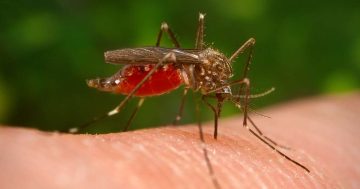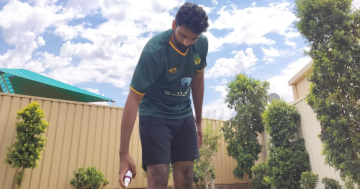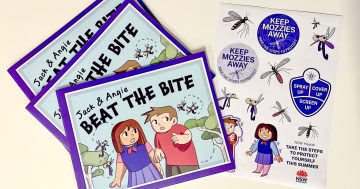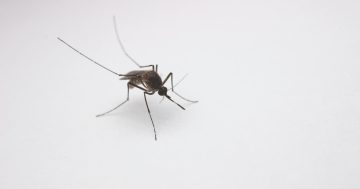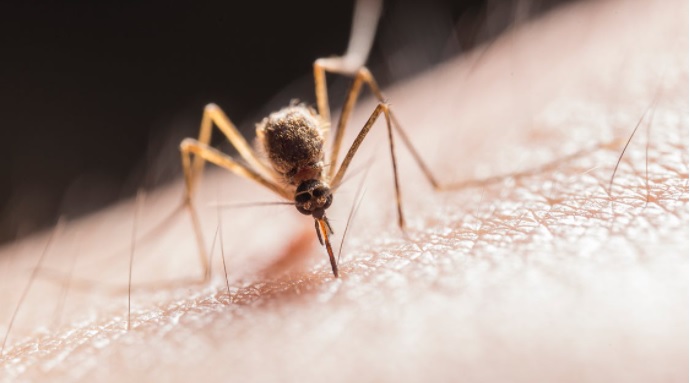
Record numbers of mosquitoes are being caught in purpose-built traps located in the Riverina towns of Leeton, Griffith, Hay, Deniliquin and Albury. Photo: Supplied.
In a year that’s already seen residents of Southern NSW battling massive storms, high-level rainfall and floods, now mozzies are the emerging threat.
In recent weeks NSW Health has issued several warnings urging people to take extra precautions to protect themselves against mosquito bites and acquiring a mosquito-borne disease as high numbers of the insect are being detected by authorities.
Murrumbidgee Local Health District (MLHD) senior environmental officer Tony Burns told About Regional abnormal numbers of mosquitoes were being caught in purpose-built traps located in the Riverina towns of Leeton, Griffith, Hay, Deniliquin and Albury.
The mosquito traps, which are left out for 12 hours, rely on light and carbon dioxide from dry ice to attract the insects and a fan to blow them into a bucket. The traps are then packed into an esky with freezer bricks and sent to Sydney for analysis.

Murrumbidgee Local Health District (MLHD) senior environmental officer Tony Burns. Photo: MLHD.
“Last week in Wagga in one trap we had around 700 mosquitoes caught in one night,” he said.
Mr Burns explained that the nightly average for this time of year is under 100.
“But given the amount of water lying around, it provides the ideal breeding ground for mosquitoes,” he said.
There have now been 37 cases of Ross River virus reported across the Murrumbidgee Local Health District in January, and residents could be at risk of a number of other mosquito-borne diseases.
Leading the defence on that front are a small army of feathered soldiers.
Weekly blood samples from the chickens are tested by scientists to assess if the birds had been exposed to Murray Valley encephalitis virus or West Nile virus (subtype Kunjin) – providing an early warning system for when preventive measures need to be ramped up.
Late last year Victoria laid off their sentinel chickens in favour of direct molecular testing of mosquitoes, but Mr Burns said they were still very much a part of the health armoury for NSW.
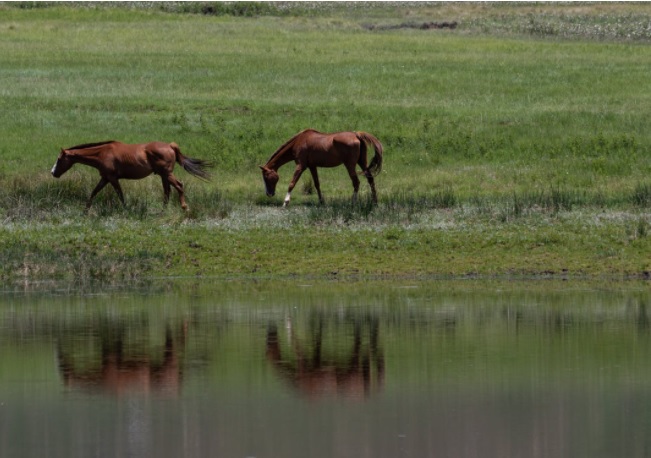
The Kunjin virus has been detected in horses in a range of locations in Southern and Northern NSW, indicating that Kunjin may be circulating in mosquitoes and has potential to cause human infection. Photo: Supplied.
In NSW, flocks are established at Bourke, Deniliquin, Forbes, Griffith, Hay, Leeton, the Macquarie Marshes, Menindee and Moree between November and April.
Murrumbidgee and Southern NSW Public Health Unit (PHU) director Tracey Oakman said the Kunjin virus has been detected in horses in a range of locations in Southern and Northern NSW, indicating that Kunjin may be circulating in mosquitoes and has potential to cause human infection.
“It is important to be vigilant about protecting yourself from mosquito bites as mosquitoes can spread Kunjin and Murray Valley encephalitis viruses,” Ms Oakman said.
Kunjin and Murray Valley encephalitis virus infection are two rare but serious infections of the brain which can cause symptoms such as severe headache, neck stiffness and sensitivity to bright lights, drowsiness, confusion and possible seizures.
“There is no vaccine and no specific treatment for these viruses. The best way to avoid infection is to avoid being bitten by mosquitoes,” Ms Oakman said.
Simple steps to help manage exposure to mosquito bites include:
- Screening all windows and doors to prevent mosquitos from coming inside. When camping, use flyscreens, or sleep under mosquito nets.
- Limit the number of places around your home for mosquitoes to breed by getting rid of items that hold water or by emptying the containers.
- Avoid being outside unprotected, particularly during dawn and dusk when mosquitos are most active.
- When outside cover up as much as possible with light-coloured, loose-fitting clothing and covered footwear.
- Apply mosquito repellent regularly to exposed areas (as directed on the container). Repellents containing Diethyl Toluamide (DEET) or Picaridin are best. Repellents containing oil of lemon eucalyptus or p-Menthane-3.8-diol (PMD) also provide adequate protection.
- Don’t use repellents on the skin of children under the age of three months. Instead use physical barriers such as netting on prams, cots and play areas for babies.
- Devices that use light to attract and electrocute insects are not effective. Use insecticide sprays, vapour dispensing units (indoors) and mosquito coils (outdoors) to clear rooms or repel mosquitoes from an area.
- When mosquitos are present inside the room, use over-the-counter insecticide sprays, especially behind furniture and dark places.
For further information please call your local public health unit on 1300 066 055.
Original Article published by Edwina Mason on About Regional.







